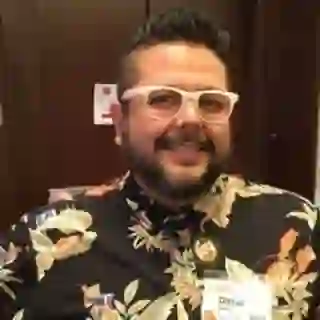Word on the Street: Why Are HIV Rates in the Latino Community So High?

Lack of culturally appropriate services? Family silence around sex? Or is it the scourge of stigma that's responsible for high HIV rates in U.S. Latino communities? According to a recent CDC count, Latinos accounted for 21 percent of new HIV cases in the U.S., despite representing only 16 percent of the U.S. population. We asked a number of Latino people living with HIV, advocates and professionals, what they think is going on.

Jesus Chavez, Washington, D.C.
As an undocumented immigrant I understand firsthand the difficulty of accessing resources like health insurance and medical attention -- especially when immigrants, undocumented immigrants, they come to this country to work and provide for their families.
And oftentimes [they] don't even know self-care. They don't know that they need to get physical checkups, that when they're sick they should go to the doctors. Because a lot of times in our culture we treat ourselves. We know medicinal herbs that help us get healthy. Oftentimes we wait until we are so sick that we need to go to the hospital.
So, not knowing the language in this country is already limiting our access to health insurance -- on top of that [we have limited access to] other services that already are granted to Americans.

Prue Mendiola, Los Angeles, Calif.
My family doesn't talk about sex, ever. So I think that might be a big factor -- that communication doesn't seem to be very open among, at the very least, Mexican-American families.

Alex Garner, Washington, D.C.
I think that the [HIV] rates among the Latino community are so high primarily because of lack of access to quality health care, social determinants of health, and frankly because of issues around homophobia and stigma and issues around gender.

F. Rene Cotto-Lewis, Orlando, Fla.
Well, one of the reasons that I think [HIV] is increasing, and it is so high within the Latino community, is because of the lack of education. I don't think there's enough. I see a fragmented system that doesn't provide sufficient education for those who get linked to know exactly what HIV is -- and in the Spanish language, as well -- to have a complete understanding of why you have to take your medications and stay in care, regardless of your not being sick.

David Garcia, New York, N.Y.
I think that the rise of HIV among the Latino community in the United States is partly due to a lack of culturally responsive services in the United States. We need more Latino providers. We need more Latino health educators, more Latino services -- in general [and] community-based organizations that are sustainable to meet the needs of Latinos.

Danny Cruz, Los Angeles, Calif.
I think the HIV-infection rates in the Latino community continue to rise because within our own backgrounds, within our own family structures, we deal with a lot of homophobia. We deal with a lot of machismo -- this idea that gay sex is bad. So unprotected sex is more macho, and it's procreative. So, even when we teach our young boys, thinking that they're going to go have straight sex, we teach them that it's macho to do it bareback. And we don't really teach that protection element -- which, unfortunately, not only affects gay men who are Latino, but also straight females who are Latina and having sex with those men.

Arman Lorz, Denver, Colo.
I think there is a need for education, more education, bilingual information. And we need more services in both English and Spanish for the Latino population, in all aspects of the services -- prevention, treatment and care -- and more education on how to do it for those who are Latino immigrants in need of services for immigrants.

Edwin Corbin-Gutierrez, Washington, D.C.
Stigma is one of [the problems]. So I think there's still a lot to talk about. In a way, we need to take a step back and look at the social, cultural areas that are kind of preventing people from accessing care and prevention services.
I think Latino providers have not been as diligent in the way that they've been able to mobilize and access health reform: initiatives, opportunities, innovations. ... I think Latino service providers still have a ways to go, in terms of being part of that movement of access, and expanding access to health care services across America.

Adrian Castellanos, Elsa, Texas
I think a lot of it has to do with immigration and access to health care. A lot of times, people don't even want to go into our office, even though we don't ask for any sort of identification, citizenship papers, insurance -- nothing. All our stuff is for free.
We've heard people tell us that they don't want to go in because they're afraid to tell us that they're Mexican citizens, or that they're undocumented, because they think that they're going to get in some sort of trouble. And aside from that, [they say] they wouldn't know how to access care after. They don't know that we provide that guidance for them. I live in a really heavily Mexican-American populated area. I live right next to the border.
[In the Latino community, because of machismo], [a]nyone that's assigned male at birth and expresses, identifies or presents differently than that, in feminine ways, is often a target of systemic and interpersonal violence, because of misogyny. Whenever someone's not like that macho manly man, they're kind of left out of the bracket.

Pablo Colon, New York, N.Y.
I am off the curve because I'm an HIV-negative man, and I've always thought about prevention. You know? Maybe it's because my mom was a little hypochondriac and I have that, a little bit, in me. But I think that [Latinos] are hot, you know? We love sex. And we don't always think about protection.
Also, mental health issues and drinking is really a big problem that makes us lose our heads, and make wrong choices, and get infected. People get infected that way.